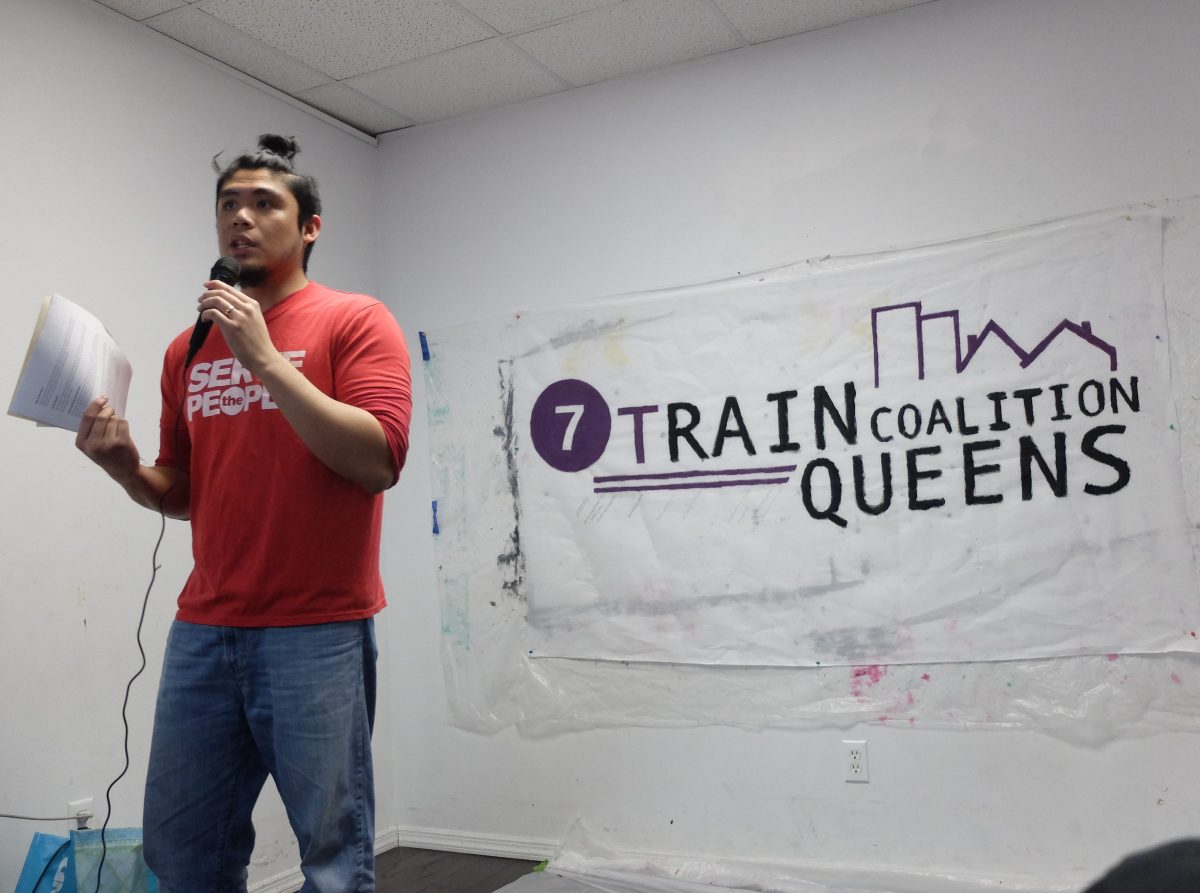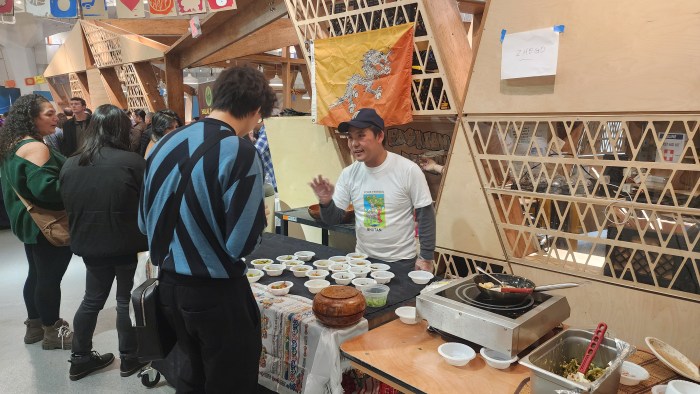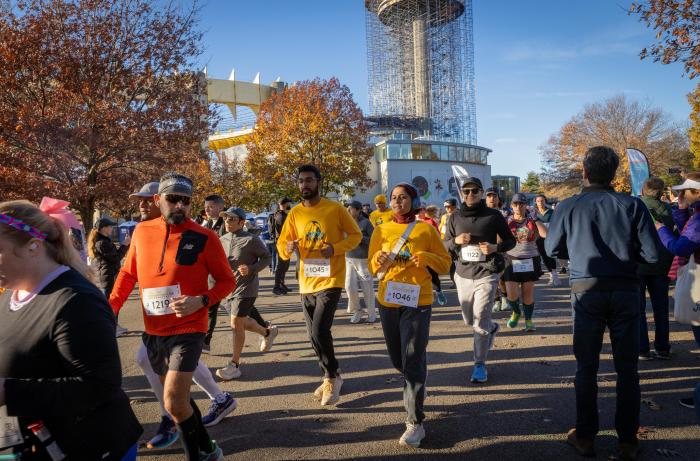BY ALLYSON ESCOBAR
Over 60 community members, leaders and organizers packed the Immigrant Movement International center in Corona on Sunday, March 18, for the official launch of the 7 Train Coalition.
Collectively formed to fight gentrification and housing privatization and end displacement in neighborhoods along the 7 line (Long Island City, Astoria, Sunnyside, Woodside, Elmhurst, Jackson Heights, Corona and downtown Flushing), the coalition is made up of Queens-based grassroots organizations including the Queens Anti-Gentrification Project, Anakbayan New York, Migrante New York and the Coalition to Defend Corona.
“The idea is to build a bottom-up vision and plan for the community, to come up with our own — not big businesses’ or nonprofits’ — ideas of how to improve the neighborhood,” said Mike Legaspi, one of the event organizers. “While it’s true there are a lot of things to fix, we as a coalition believe that this development needs to be community-controlled, not corporate-controlled.”
The 7 Train Line Coalition will launch sub-committees based on community district to establish neighborhood development plans, straight from the people who live there.
“A few months ago, members of these groups got together with the purpose of building solidarity, improving communication between neighborhoods, and help each other out. When the city looks at the 7 line, they look at it in terms of development,” said Michael Forest, 34, a Woodside resident from the Queens Anti-Gentrification Project. “We already see it happening in Long Island City and Flushing; now they’re sort of filling in the middle. The city planning process favors developers. They start with rezoning to make money, then land value increases, everyone’s rent goes up, and people get priced out.”
Forest added that the coalition’s goal is not to be nonprofit- or politician-led, but steered by immigrant communities and working class folks.
“With the different structures for community boards in place and the city’s bureaucratic process in terms of development, as communities that are united, we can and should be in power to make our own plans,” said Chrissi Fabro, 26, from Anakbayan, NY.
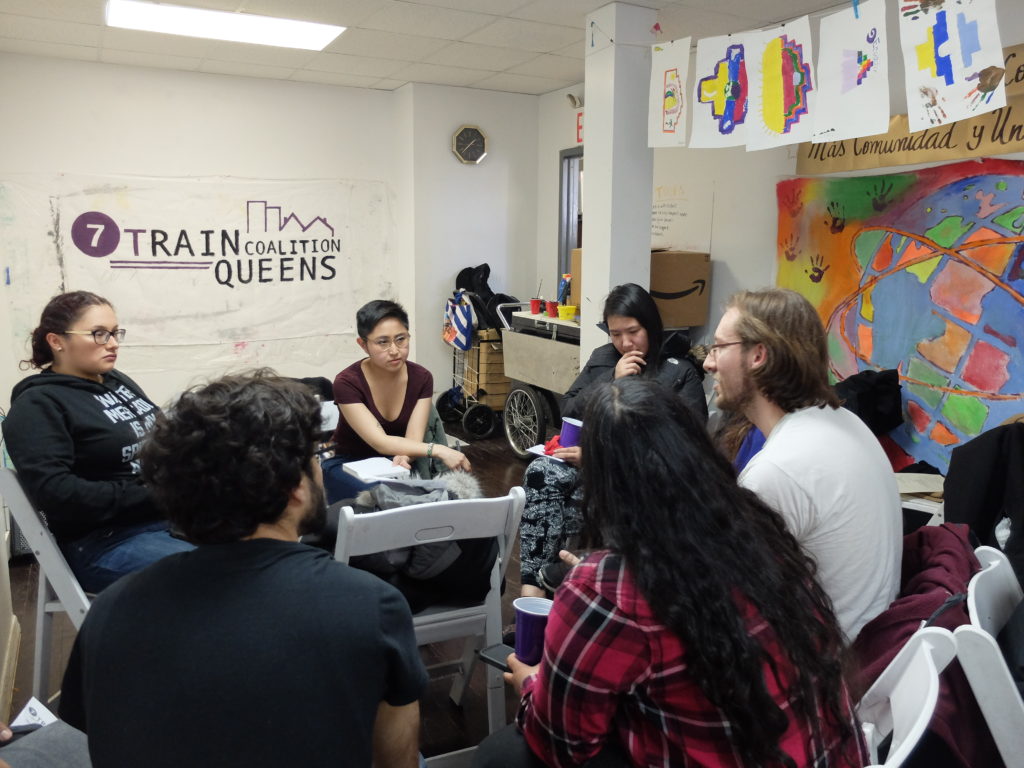
With recruitment a first priority, the coalition hopes to get public input through community surveys and assemblies, mapping meetings and on-the-ground investigation. Its last step is presenting well-structured plans, set forth by citizens, to the community board and Queens Borough Hall.
Organizers said that while the Department of City Planning and major nonprofits do send out surveys and plans claiming to support the community, many often end up selling out to larger corporations instead of listening to their needs.
“The city is working on many ways to develop and preserve much-needed affordable housing, expand economic development opportunities and grow good jobs, and help New Yorkers thrive in the communities they love,” said John Young, director of the Queens Office at the DCP, in a statement. “We welcome dialogues with residents and other stakeholders on strategies that can achieve these objectives and nurture vibrant neighborhoods.”
At the launch, lively discussion and breakout sessions, divided by community board, allowed the attendees to express their concerns — from rezoning and increasing rent, to homelessness and police activity along the 7.
Immigration lawyer Jackie Mariano, 27, brought up protection for Elmhurst Hospital against privatization. Sheena Pachon, a longtime Flushing resident, called for major fixes to the transportation hub along Main Street, where the 7 line ends.
Emma Heaney recently moved to Sunnyside from Crown Heights, and is looking to get involved in what she calls the “working class struggle” against gentrification.
“You see the Long Island City skyline moving over in Sunnyside, and you just feel [gentrification] is coming closer and closer,” Heaney, 37, said. “There are also concerns of the L train shutting down next year, how that will juggle people. I don’t think anyone in New York City feels safe from that action — and so we in Queens have to get ahead of the movement.”
Elizabeth Hodges, an urban studies student at Hunter College who recently moved from Flushing to Astoria, is also afraid of L train displacement.
“People are going to be rushing into Queens because the 7 train is a reliable source of transportation,” said Hodges, 21. “We need this coalition now, to fight displacement of communities who have been here. It’s great how proactive they have been starting now, as opposed to when everything happens.”
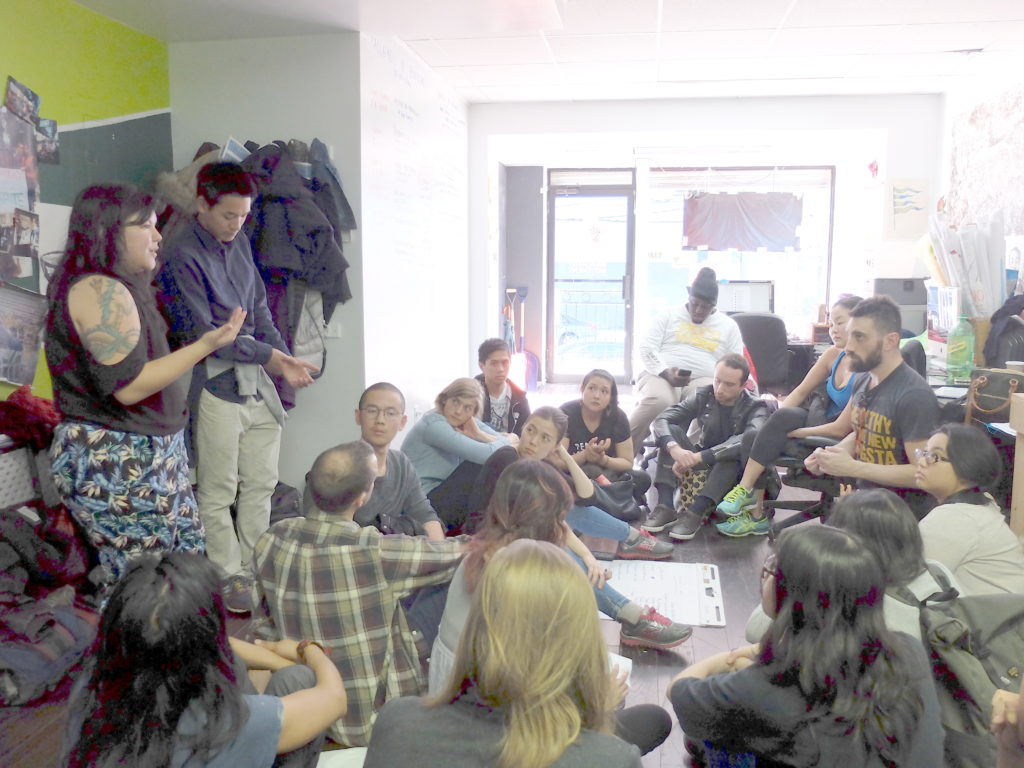
Attendees also discussed a broad vision for their community, and how they see community-based planning as a way to provide concrete solutions. Members also hope to bring in various skills, ideas and experience to the coalition.
Victor Rodriguez, a realtor with American Dream Real Estate, cited the presence of big developers like LeFrak City in Elmhurst and Corona. He said that he was bothered by families being priced out of their homes, and always looking like “the bad guy.”
Another real estate agent, Rafael Jose, suggested a rental addendum to housing leases, which would state that landlords and developers — both under enormous pressure from private institutions — must maintain affordability for tenants, and avoid selling out to corporations.
“Part of the role of a coalition as a whole is dealing with the future of rising developments,” said Dan Raymond, 32, from the Queens Anti-Gentrification Project. “What we can do as a united coalition is advocate for a policy at the citywide level — you have to have a lot of people to enact any kind of real change.”
At the advocacy level, the 7 Line Coalition supports policies against landlord harassment and public housing neglect, and for market-rate rent freeze. Members also don’t need to pay or formally join an organization to be part of the coalition.
A leader of the Coalition to Defend Corona — which supported the recent Community Board 4 decision against rezoning and the potential building of a Target on 82nd Street in Jackson Heights — suggested to work with community boards along the 7, though not rely solely on them.
Requests for comment from the various community boards represented in the coalition (Community Boards 2, 3, 4 and 7) have not yet been returned.

